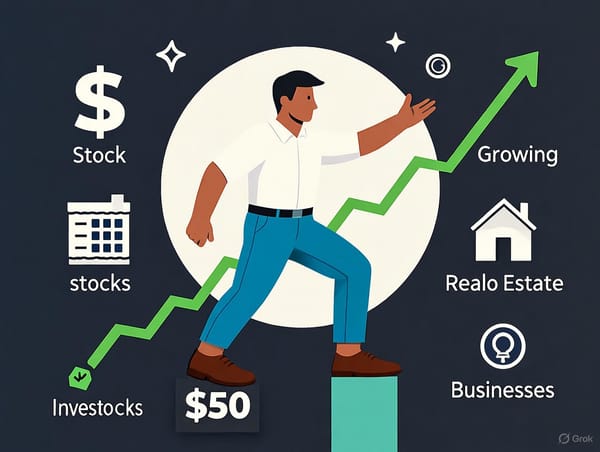Master Your Resources
Mindfulness practices like meditation and journaling enhance mental clarity, empowering you to manage money, time, and energy with intention and purpose.

In a chaotic world, managing money, time, and energy often feels like juggling with no end in sight. What if the secret to mastering these resources lies not in complex tools but in cultivating mental clarity? Mindfulness—the practice of being fully present and aware—offers a powerful way to optimize your most precious assets. By reducing stress, sharpening focus, and fostering intentionality, mindfulness transforms how you allocate resources. This article explores how meditation and journaling can lead to smarter decisions, helping you make the most of your money, time, and energy.
What Is Mindfulness, and Why Does It Matter?
Mindfulness means paying deliberate attention to the present moment without judgment. It’s about observing your thoughts and surroundings with curiosity, not reacting impulsively. When distractions or stress cloud your mind, you’re more likely to overspend, waste time, or burn out. Mindfulness counters this by fostering self-awareness, enabling you to align actions with priorities. For example, poor financial choices can drain energy, while procrastination limits wealth-building opportunities. A mindful approach breaks this cycle by encouraging purposeful decisions.
Meditation: Your Foundation for Clarity
Meditation trains your mind to stay present, enhancing your ability to manage resources effectively. Just 5-10 minutes daily can yield significant benefits.
- Smarter Financial Decisions: Meditation creates a pause between impulse and action. A 2018 study in Frontiers in Psychology found that mindfulness meditation reduces impulsive decision-making by improving self-regulation. This helps you resist flashy sales or risky investments, sticking to budgets and long-term goals.
- Better Time Management: By sharpening focus, meditation reduces time lost to distractions like mindless scrolling. It helps you prioritize high-impact tasks, as emphasized in frameworks like the Eisenhower Matrix, freeing up time for meaningful pursuits.
- More Energy: Meditation activates the parasympathetic nervous system, lowering stress. A 2017 Psychoneuroendocrinology study showed that a 10-minute session can reduce cortisol levels, leaving you energized for work, creativity, or exercise.
Try This: Start with a 5-minute morning meditation. Sit comfortably, focus on your breath, and gently redirect wandering thoughts. Apps like Calm or Headspace can guide you.
Journaling: Reflecting for Intentionality
Journaling deepens self-awareness by helping you process emotions and plan with purpose. A 10-minute daily practice can transform your resource management.
- Financial Clarity: Writing about your values and goals shifts focus from material desires to contentment. Try a gratitude journal or track spending to uncover patterns, like impulse buys. Ask: “What does financial freedom mean to me?”
- Purposeful Time Use: Morning intention-setting (e.g., listing two key priorities) keeps you focused. Evening reflections on how you spent your day highlight what’s fulfilling and where to improve.
- Emotional Energy: Expressive writing reduces anxiety and boosts mood, per a 2019 Behavior Research and Therapy study. Processing challenges on paper frees mental space for creativity and decision-making.
Try This: Use a prompt like, “How did I use my time today, and what felt meaningful?”.
Overcoming Obstacles Early
Mindfulness can feel daunting if you’re busy or skeptical. Start small—even a 1-minute breathing exercise helps. If you doubt its value, treat it as a two-week experiment. To stay consistent, tie practices to routines, like journaling after coffee. Benefits compound over time, so focus on progress, not perfection.
The Ripple Effect
Mindfulness creates a virtuous cycle: saving money reduces stress, which boosts energy for productive work. Efficient time use allows for self-care, like exercise, enhancing decision-making. This resilience helps you navigate life’s unpredictability—unexpected expenses or deadlines—with confidence.
Get Started Today
- Meditate for 5 Minutes: Use an app or focus on your breath each morning.
- Journal with Purpose: Write one priority for the day and reflect on it at night.
- Pause and Check In: Ask, “Am I using my resources intentionally?” during the day.
- Track Progress: Log your practices weekly to notice improvements in focus or stress.
- Challenge: Try one mindfulness practice daily for 7 days. Note how it impacts your decisions and energy.
A Life of Intention
Mindfulness isn’t just about optimizing resources—it’s about living with purpose. Meditation and journaling build a mindset of presence and possibility, empowering you to design a life aligned with your values. Start small, stay patient, and watch clarity transform your money, time, and energy into tools for a fulfilling life.





